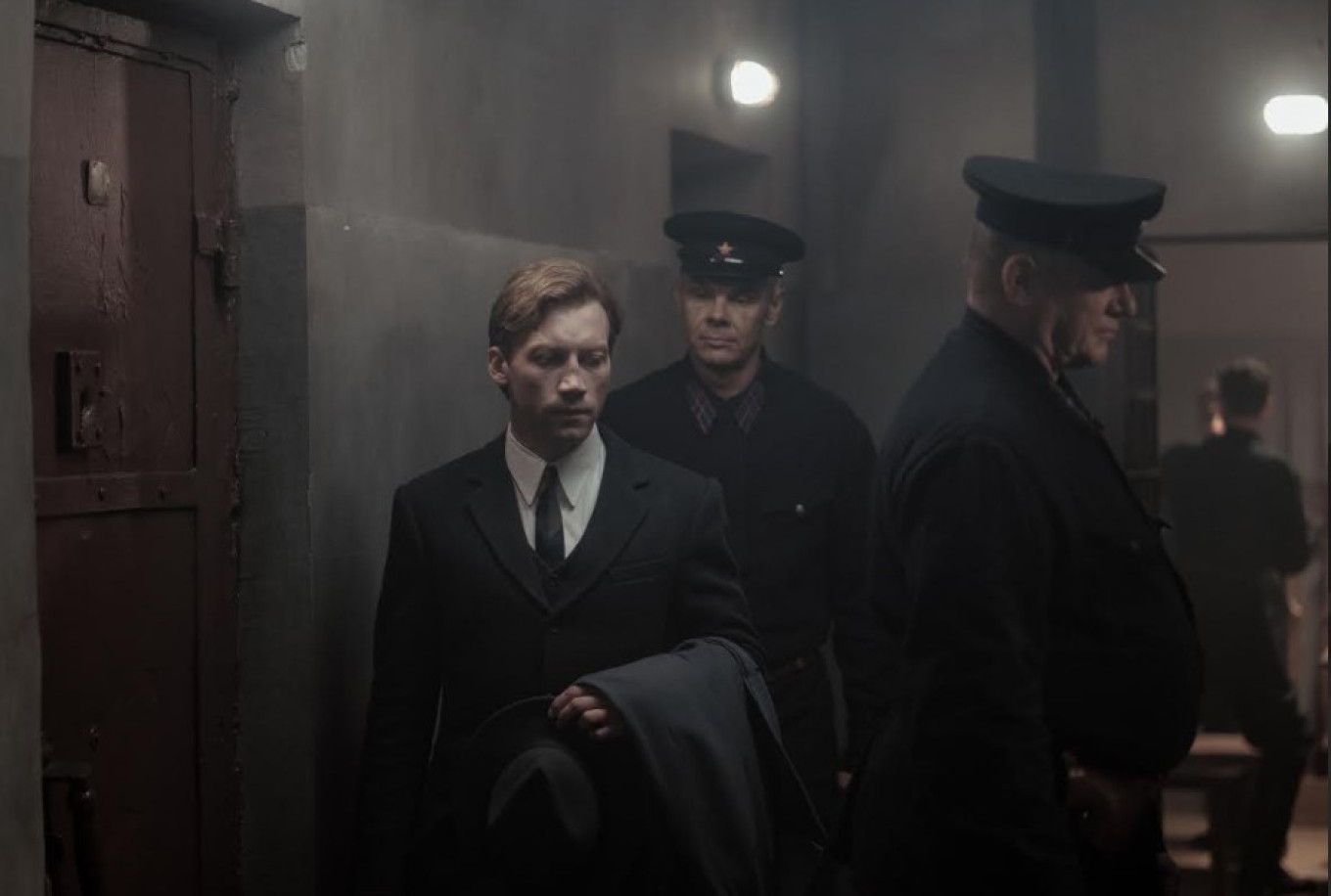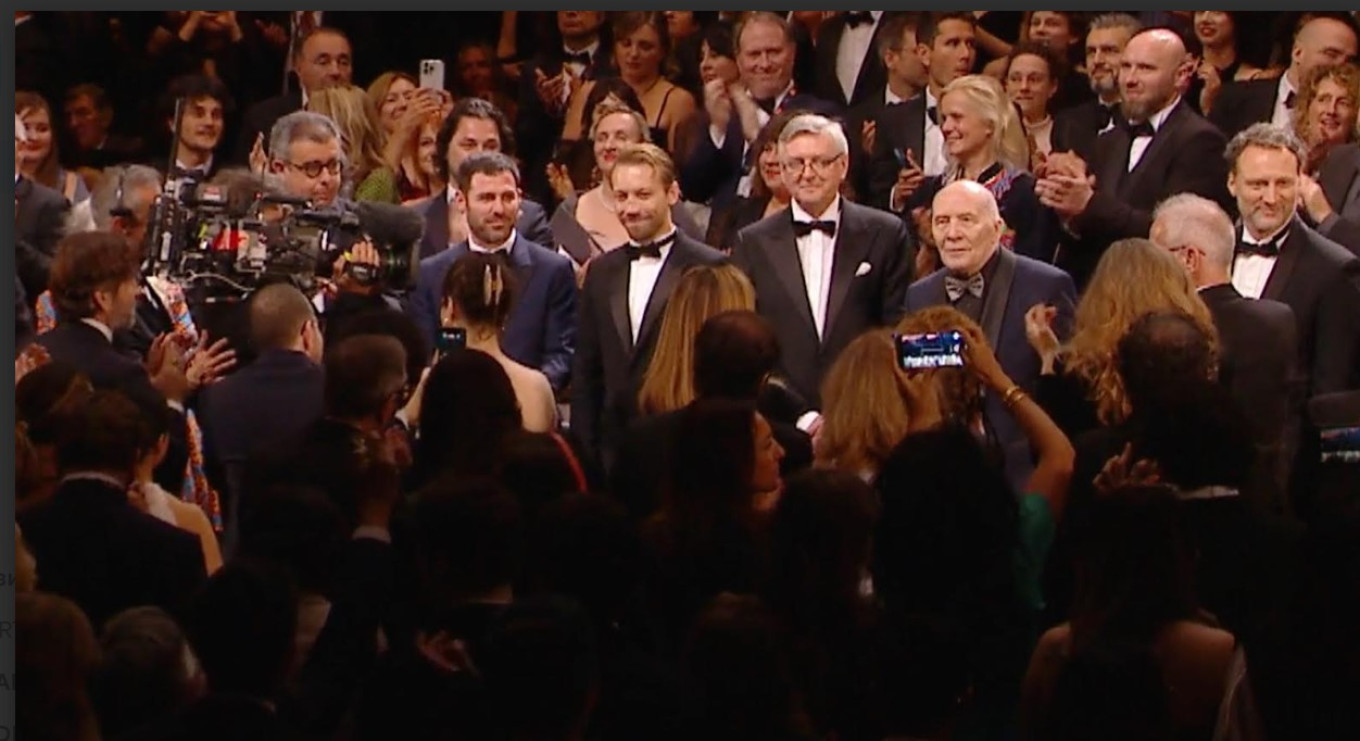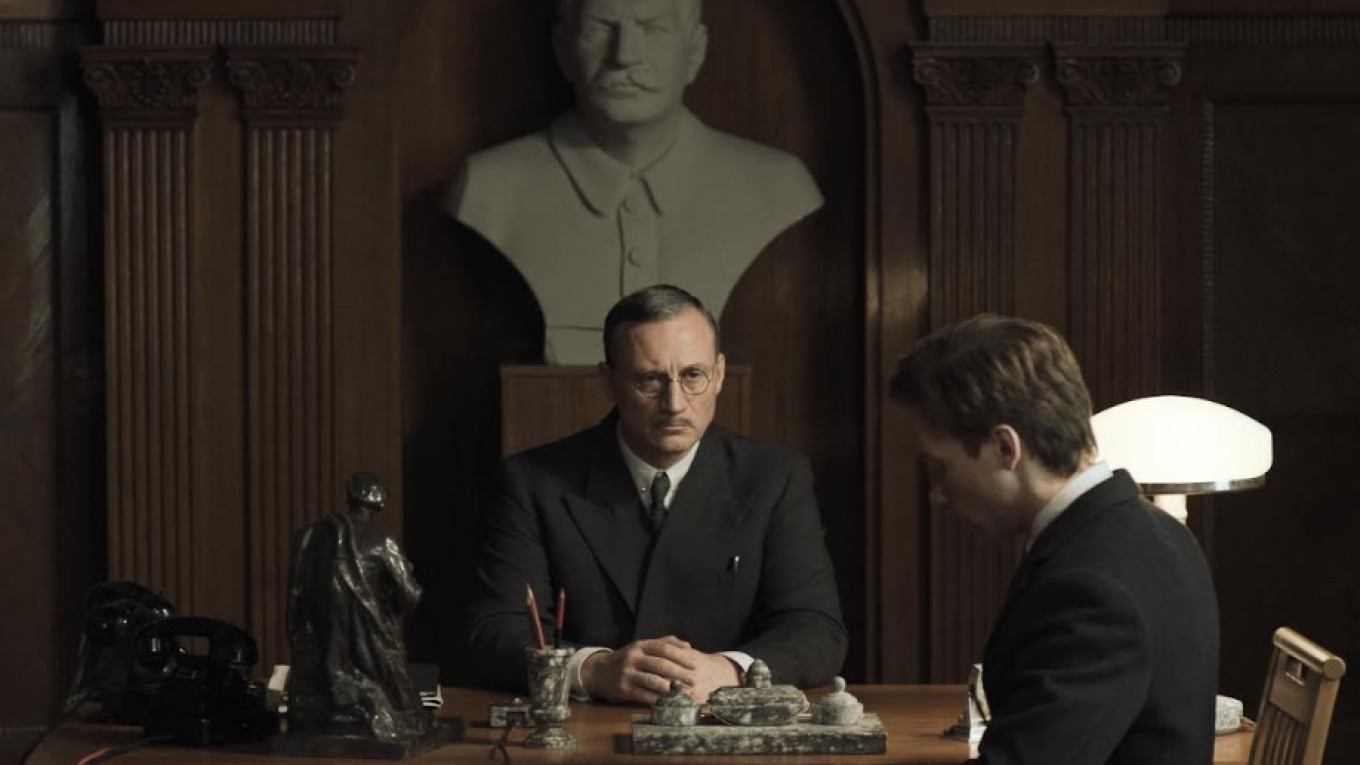It begins with a stove, a stack of desperate letters, and a man too old to protest his fate. Sergei Loznitsa’s “Two Prosecutors,” adapted from an unpublished novella by Gulag survivor Georgy Demidov, is a bleak and claustrophobic descent into the soul-grinding machinery of state terror. It is also — perhaps surprisingly — one of Loznitsa’s most accessible, emotionally immediate films to date.
Set in 1937 during the paroxysmal peak of Stalin’s purges, the film opens in a prison so muted and airless it could be mistaken for a morgue. An elderly prisoner, disheveled and ghostly, is tasked with burning letters addressed to “The Leader” — hopeless cries for justice, penned in blood, hidden in seams, smuggled out under layers of filth. These letters will never be read. But one miraculously slips through.
What follows is not a story of redemption, but of a slow, suffocating, Kafkaesque exposure. The first of the titular prosecutors is Sasha Kornyev (Aleksandr Kuznetsov), a fresh-faced law graduate whose ideals still gleam with youthful clarity. The second is Andrei Vyshinsky (Anatoly Bely), Stalin’s real-life prosecutor general and chief architect of the show trials — a man whose presence looms long before he enters the frame.
When Kornyev receives the forbidden letter, he travels to the prison in Bryansk, where he meets Stepniak (Aleksandr Filippenko), an aging Bolshevik accused of sabotage. The scars on his back — and on the system — run deep. What Stepniak reveals is not merely personal torment, but systemic rot: the NKVD (The People's Commissariat for Internal Affairs), once the iron fist of Communist purity, is now infested with sadists and opportunists who are purging the old guard under the guise of justice.

Kornyev’s journey to Moscow to deliver this revelation to Vyshinsky might feel, in another kind of story, like the second-act turning point. Here, it is the beginning of an unraveling. For all his good intentions, Kornyev steps into a web where logic and law are irrelevant. His visit to the capital — a masterclass in production design with its sickly green paneling and passive-aggressive Leninist iconography — only deepens the absurdity. The machinery of justice is revealed to be a Potemkin construct, one where guilt is preordained and innocence is just another form of heresy.
Loznitsa, whose past work has tackled subjects ranging from the Holocaust to the war in Donbas, spoke to the international press in Cannes following the premiere: “When I first read “Two Prosecutors,” it stayed with me. Demidov was arrested in 1938 in Kharkiv, where he was an experimental physicist. He spent 14 years in the Gulag — camps he called ‘Auschwitz without ovens’. The novella was written in 1969 but couldn’t be published or even read aloud safely. It waited forty years to be seen.”
Demidov’s manuscripts were confiscated by the KGB in 1980 and only returned in 1988, thanks to a petition by his daughter. The novella was finally published in 2009 — long after the writer’s death, and long after his stories had largely faded from public view.
Loznitsa’s adaptation revives them with archival precision and dramatic restraint, shot inside a defunct prison in Riga, where the drab greens of the walls and the weight of silence evoke a kind of state-sponsored claustrophobia. Dialogue-heavy scenes unfold in real time. The camera lingers in corridors, on doors that never open, on faces that never betray more than strategic indifference. The film’s horror is not in violence — though it is implied — but in repetition, futility, and the unbearable weight of bureaucracy when wielded by the unworthy.
Though the film is ostensibly about the past, its real target is the present. In an era where truth is being negotiated, history rewritten, and institutions hollowed out from within, “Two Prosecutors” is less a period piece than a mirror. What begins as a Soviet parable gradually assumes global relevance. The law, the film reminds us, is only as strong as those entrusted to uphold it — and as vulnerable as the next opportunist eager to weaponize its ambiguity.

Asked if a story set in Stalin’s U.S.S.R. feels relevant today, Loznitsa didn’t hesitate. “Unfortunately, these topics remain relevant as long as totalitarian regimes exist anywhere in the world,” he said. “Even democratic societies are not immune to authoritarian impulses. That’s why the purges of the 1930s still matter — they need to be studied, reflected upon, and understood.”
The machinery of fear and suspicion is at the heart of “Two Prosecutors.” Its goal is not justice, but fear — a psychological tool to control society. The story is fictional, but the mechanism is real. There’s no catharsis here. Just a question, posed quietly but firmly: what happens when truth, decency, and justice are caught in the gears of a self-preserving system?
“This is the question I keep returning to,” Loznitsa said. “How do we confront power when it demands silence? When the machine is built not to listen, but to destroy?”
Loznitsa, whose films have often explored difficult aspects of Soviet and post-Soviet history, has had a complex relationship with contemporary Russian institutions. The involvement of several prominent Russian actors currently working abroad adds another layer of poignancy to the film's reception and its international visibility.
But perhaps that’s the point. “Two Prosecutors” is not for those still inside the system. It is for those watching from the edge — of nations, of belief, of despair.
Demidov, whose writing was suppressed for decades and whose archive was seized by the KGB in 1980, would likely recognize the irony. His tale, written in exile and obscurity, has finally reached an audience too late to save its characters, but just in time to warn the rest of us.
And that warning is this: if you think this is a story about the Soviet Union, you are already too far behind.
A Message from The Moscow Times:
Dear readers,
We are facing unprecedented challenges. Russia's Prosecutor General's Office has designated The Moscow Times as an "undesirable" organization, criminalizing our work and putting our staff at risk of prosecution. This follows our earlier unjust labeling as a "foreign agent."
These actions are direct attempts to silence independent journalism in Russia. The authorities claim our work "discredits the decisions of the Russian leadership." We see things differently: we strive to provide accurate, unbiased reporting on Russia.
We, the journalists of The Moscow Times, refuse to be silenced. But to continue our work, we need your help.
Your support, no matter how small, makes a world of difference. If you can, please support us monthly starting from just $2. It's quick to set up, and every contribution makes a significant impact.
By supporting The Moscow Times, you're defending open, independent journalism in the face of repression. Thank you for standing with us.
Remind me later.







